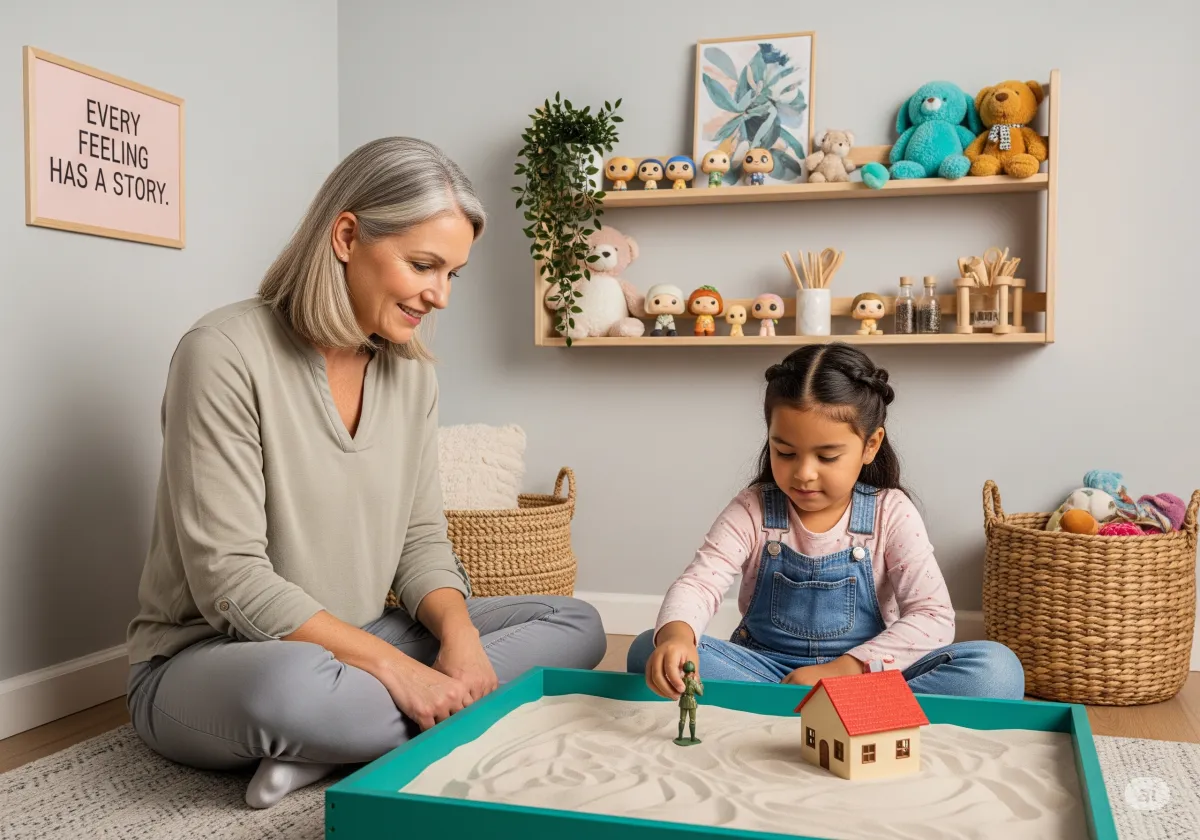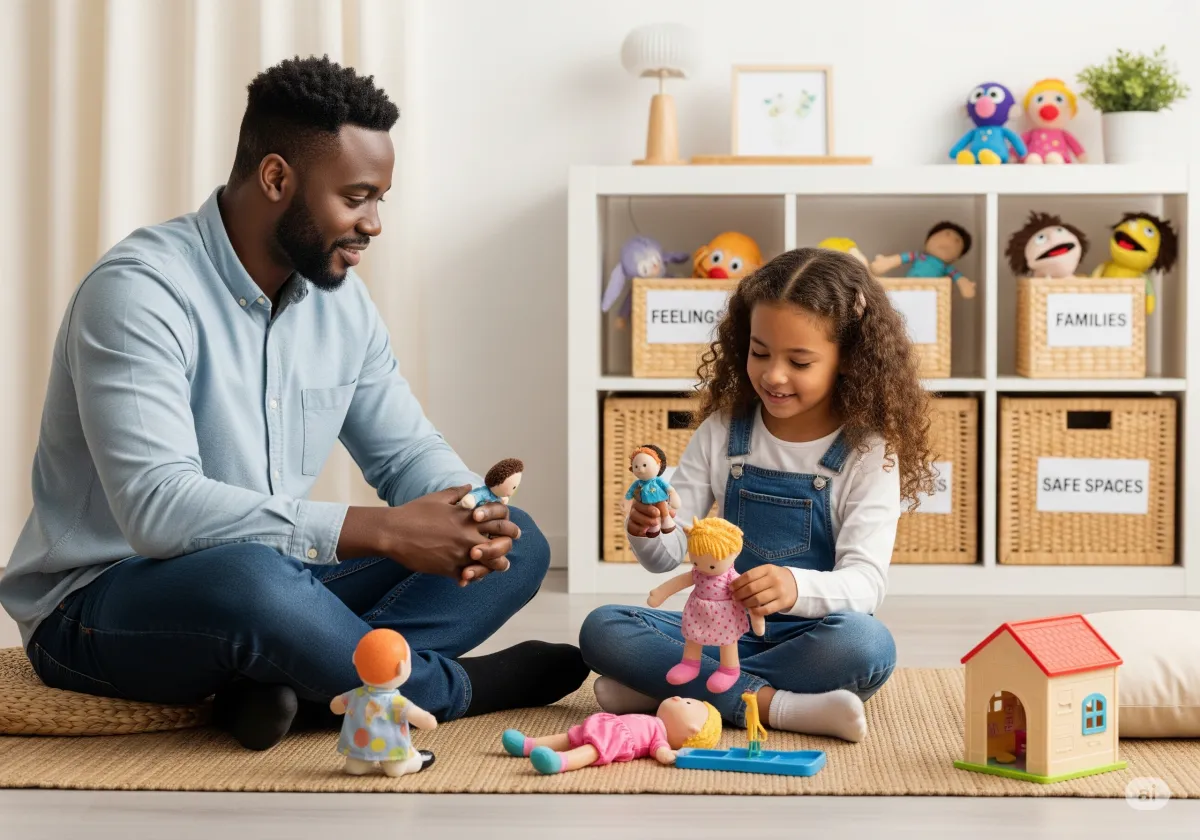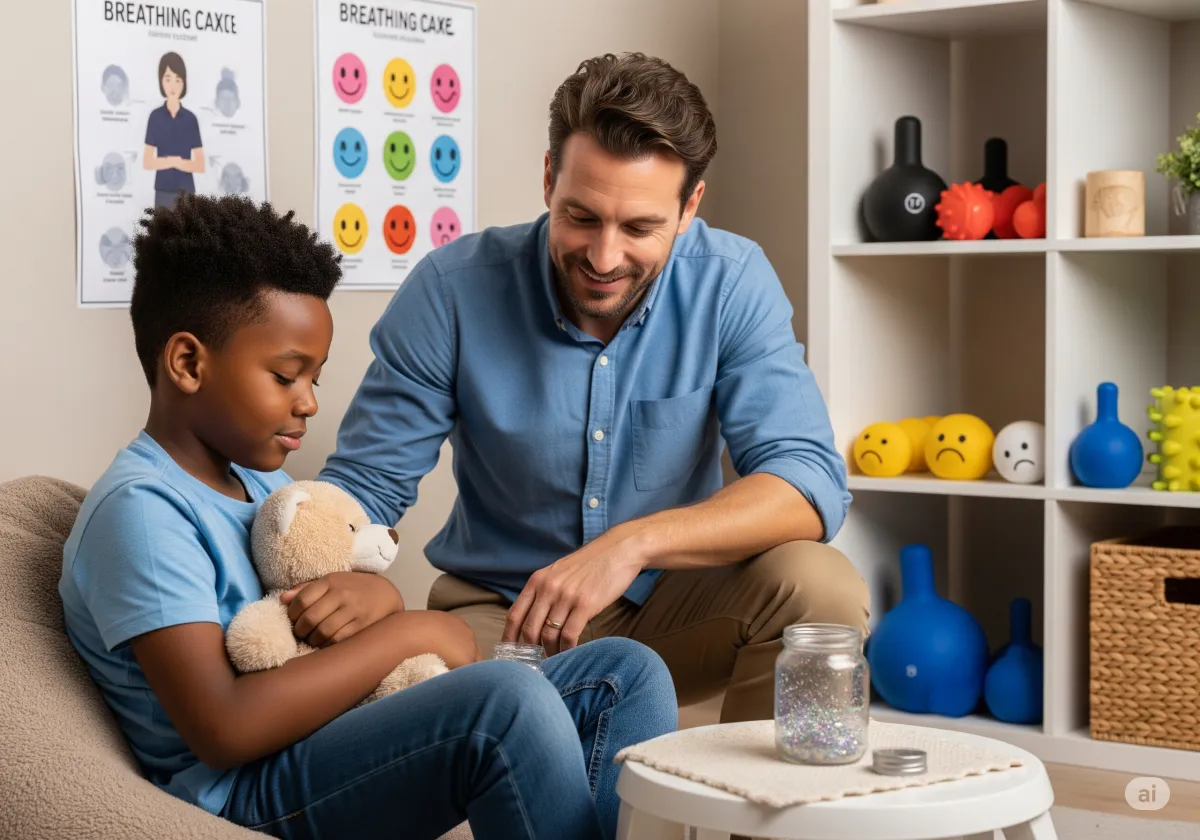Play Therapy
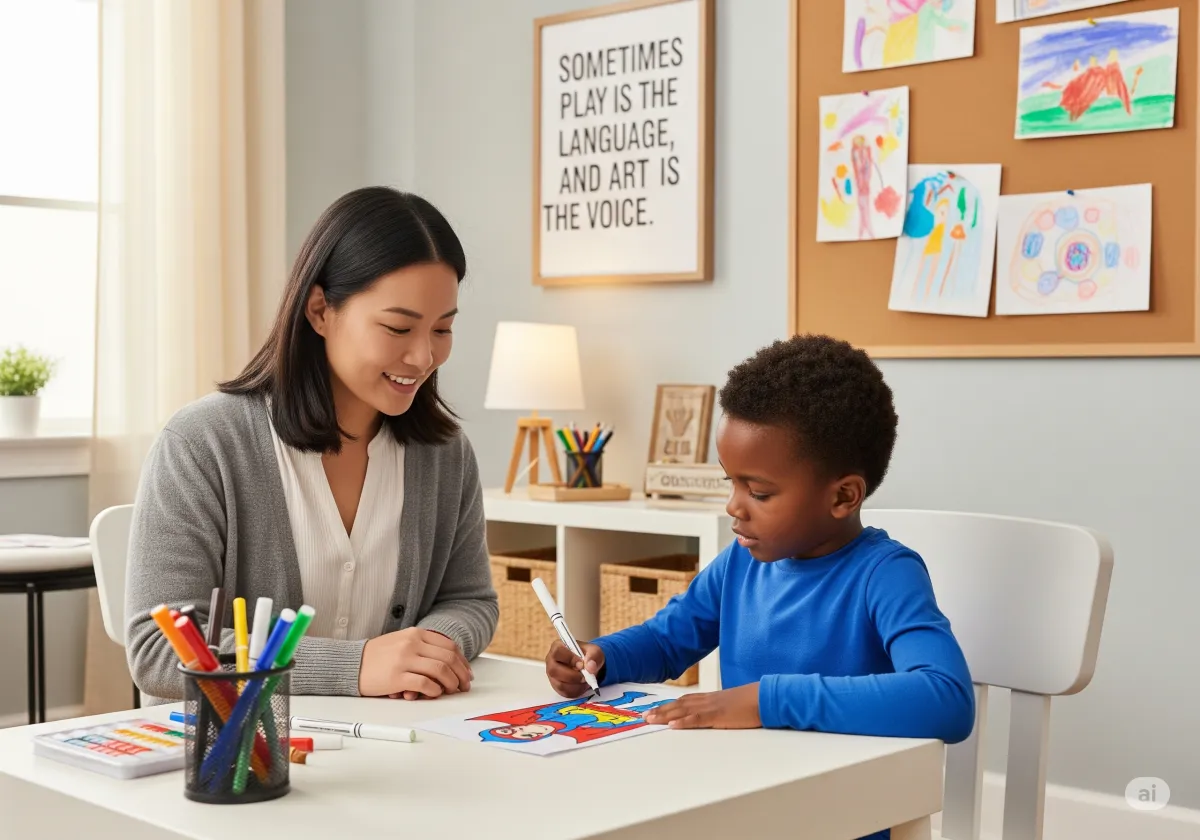
Play Therapy
Don't Let Your Thoughts Control Your Life
Play therapy is a developmentally appropriate, evidence-based approach that helps children express their thoughts, emotions, and experiences through play—their natural language. Just like adults talk through their problems, children play through theirs.
WHAT WE OFFER FOR YOU
At Cornerstone Wellness Center, play therapy allows kids to explore difficult feelings, improve behavior, and build resilience—all while being supported by a trained therapist who understands how to interpret and guide the healing process.
Why Play Therapy Is Used
Children often struggle to express complex emotions with words.
Play therapy provides a safe, structured space for them to show what they feel—even when they can’t say it out loud.
Play therapy is especially helpful for:
Anxiety or excessive worry
Behavioral challenges or aggression
Trauma, abuse, or grief
Divorce, loss, or family transitions
Social difficulties or low self-esteem
Emotional dysregulation or attention struggle
Through play, children process what they’ve experienced and learn how to cope in healthier, more confident ways.
The Goal of Play Therapy
The goal is to help children:
Understand and express their emotions safely
Improve communication and problem-solving skills
Build confidence and a positive self-image
Heal from trauma, grief, or life disruptions
Strengthen emotional regulation and self-control
At Cornerstone, we see play not as a break from therapy—but as the therapy itself when it comes to working with kids.
How Play Therapy Helps Children Heal and Grow
Play therapy gives children a voice—without demanding words. Whether they’re dealing with big emotions, hard life changes, or just need help adjusting, play therapy meets them where they are.
At Cornerstone Wellness Center, our licensed therapists create a warm, age-appropriate environment where children feel safe to explore, express, and grow—one toy, drawing, or story at a time.
A Simple Story:
Meet Carter
Carter is 7 and recently started acting out at school. He throws tantrums at home and says he doesn’t want to talk to anyone. His parents are worried but aren’t sure what’s wrong.
At Cornerstone Wellness Center, Carter began play therapy. Through sand tray play, drawing, and pretend games, his therapist noticed themes of fear and confusion about his parents’ recent divorce.
Over time, Carter learned to name his feelings and practice calming skills. His behavior improved—and he began to feel safe, heard, and understood again.
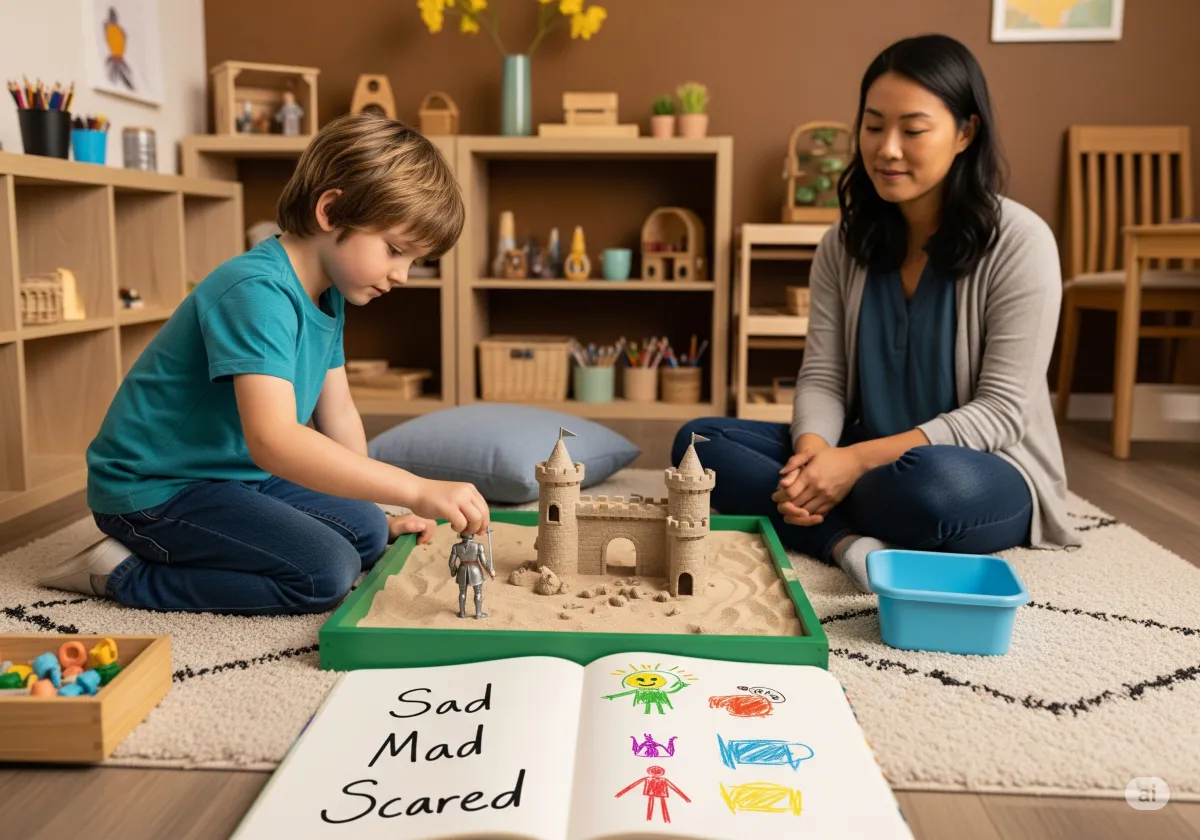
Disclaimer
The story shared above is a fictional example created for educational purposes. It does not represent a real client or actual session at Cornerstone Wellness Center. We are fully committed to maintaining your privacy and confidentiality in accordance with HIPAA regulations. Any resemblance to real persons, living or deceased, is purely coincidental.
Frequently Asked Questions (FAQ)
What is play therapy?
Play therapy is a therapeutic approach that helps children express emotions, process experiences, and develop coping skills through play-based activities guided by a trained therapist.
Is play therapy just for young children?
While it’s most common for ages 3–12, play therapy can be adapted for teens or used with families in creative and developmentally appropriate ways.
How does play help children heal?
Children naturally use play to express thoughts and emotions. A therapist helps them make sense of that play and learn new ways to cope and communicate.
Will I be involved as a parent?
Yes. Parent collaboration is a key part of treatment. Your therapist will update you regularly and help reinforce progress at home.
Will I be involved as a parent?
It can be. Because this work is deep and often symbolic, clients often benefit from a longer timeframe—but every path is personal.
How long does play therapy take?
The timeline varies, but many children show positive changes within a few months. Consistency and trust in the process are key.

Our clinic is a private mental health partnership, with a carefully selected team of Psychologists.
Compliance and Cybersecurity Provided by:
Home | About | Children | Adolescents | Individuals | Families | Business Programs
© 2026, Cornerstone Wellness Center. All rights reserved.
Made with ♥ In Las Vegas, NV by Megafluence, Inc.
Powering Thought Leaders Worldwide
https://megafluence.co









